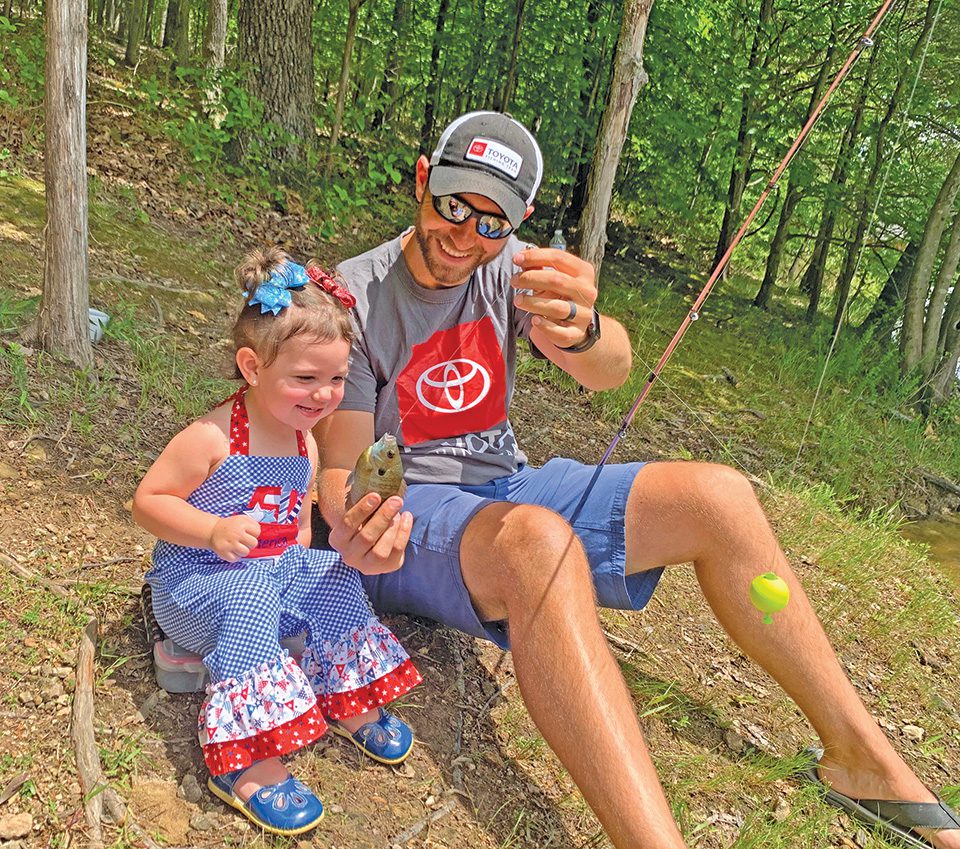By Alan McGuckin
With more than $600,000 in prize winnings to his credit, Team Toyota angler Brandon Lester is one of America’s most accomplished young professional bass anglers. The Tennessean is also one heck of a family man, and he was gracious enough to lend some advice to parents on taking children fishing for the first time.
Fishing Licenses and Life Vests
A lot of families overlook the fact that adults handling a rod and reel are required to have a fishing license, even if fishing is simply a brief part of a family camping trip or picnic.
“Don’t be intimidated by buying a license,” said Lester. “Most states offer a one-day or three-day license versus a full year to save new anglers money. And you can nearly always get a license over the phone with a fast Google search.”
In addition to making sure you have a valid fishing license, safety needs to be the absolute top priority. Lester reminded us children are required to wear a properly fitted life jacket on a boat at all times, and common sense dictates it’s wise for them to wear one when fishing from a dock or pier too.
Bait and Tackle
While everybody dreams of catching a fish the length of their arm, for kids it’s all about getting bites – and no species provides more easy action than bluegills and other shoreline-oriented panfish. A container of red worms or nightcrawlers is the fast route to success, but where many beginning anglers go wrong is on hook and bobber size.
“Bluegills are a ton of fun for kids. But keep in mind they’re not big fish, and they don’t have big mouths. So don’t buy a bobber so big they can’t pull it under. And make sure your hook is tiny enough for bluegills and other panfish to get their mouth around, too,” said Lester.
As a rule of thumb, a typical round bobber should not be any larger than a golf ball. Hooks should be sized about like a nickel. Ideally, find a pack of hooks such as Mustad’s classic baitholder in a size #6 marked on the package, and you’ll be right on target.
Keep it Fun… and Short
“You shouldn’t expect your kids to fish for eight hours, because the reality is they often lose interest after 20 minutes if the fish aren’t biting. So the key is to keep them entertained, and if that means throwing rocks in the water, a short walk down the shoreline, watching for turtles, or whatever, that’s fine. Keep it fun!” emphasized Lester.
“Don’t wear them out. Make fishing a short adventure for them. Take some snacks and drinks, and a wet rag to wipe your hands on. If you catch a few for a photo, and make some great memories, there’s a good chance they’ll want to go again. If that’s the case, you’ve succeeded as a parent, no matter what your level of fishing experience was previously,” concluded the top pro.
